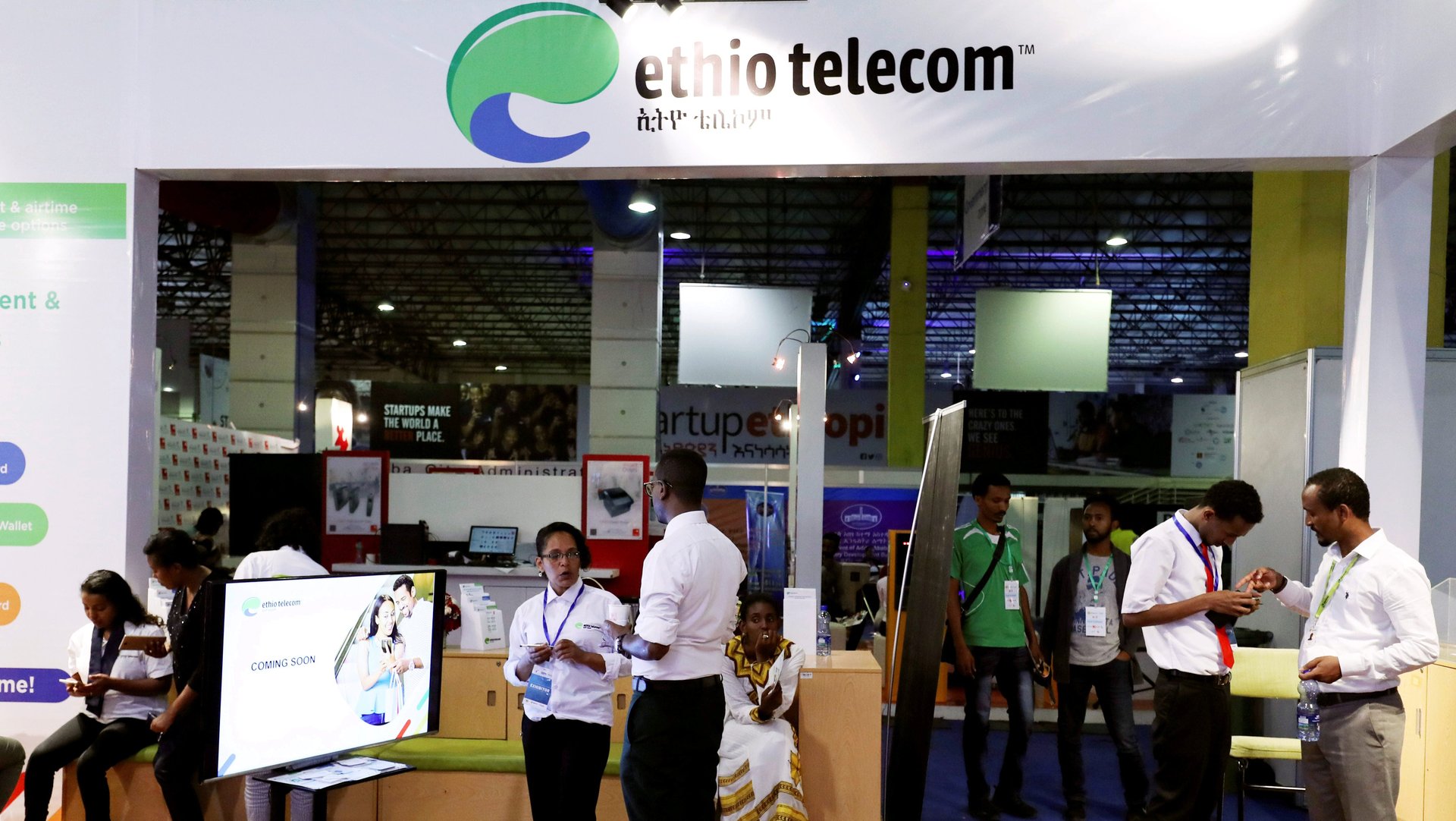The move to open Africa’s last closed telecom market raises questions on digital rights
The decision to liberalize Africa’s largest closed telecommunications market comes with so many opportunities—but at a cost.


The decision to liberalize Africa’s largest closed telecommunications market comes with so many opportunities—but at a cost.
Last week, Ethiopia announced it will award licenses to two telecom operators in a move aimed at opening up its over 100-million people market to private investors. Officials also said they will offer a minority stake in the sole mobile operator Ethio Telecom, a cash cow for the government and a key lever in the country’s development.
The much-awaited announcement stems from a major policy shift aimed at not only loosening state monopoly on key economic sectors but also hoping that improved quality, higher internet speeds, and expansive telecom infrastructure will facilitate the growth of a digital economy. Even before the decision was declared, telecom companies including UK’s Vodafone, South African operator MTN, the United Arab Emirates’ Etisalat, and Vietnam’s state-owned Viettel all expressed interest in contending for the market.
Yet among digital activists, questions are being raised about how both the government and operators will deal with questions of data privacy, freedom of expression, surveillance, and if companies will disclose why and with whom they will share the information they collect. For decades, the internet in the landlocked nation has been highly restricted, with the government enacting repressive laws and blocking popular social media platforms.
Yet since prime minister Abiy Ahmed came to power in April 2018, positive developments have taken place in the digital sphere including reduced internet tariffs, the release of imprisoned bloggers, and the unblocking of hundreds of independent and critical websites. But his administration has also resorted to old habits, shutting down the internet at least four times.
Most recently, the cut-offs happened in June during national exams and following an attempted coup in the regional Amhara state, heavily impacting economic productivity. Without giving any clear explanation, Ethio Telecom, in a first, apologized to its customers for the “inconvenience.”
In their effort to expand their businesses, the phone companies should “also pick up at what are the human rights they could be forced to violate,” says Berhan Taye, who leads a global campaign to stop internet shutdowns at digital advocacy Access Now. Telecom operators, she says, should strive to make their practices more transparent and accountable. And while the liberalization efforts are commendable she adds, there should be an effort to understand which “companies are going to come in, what their agenda will be, [and] how are they going to sign their contracts.”
Campaigners like Berhan say worrying signs already exist in the newly-passed communication regulation law, which permits “duly authorized agents” to “carry out lawful surveillance” in the course of criminal or national security investigations. In the event of noncompliance, authorities “may impose penalties, revoke, or suspend” the license to provide services.
The Horn of Africa nation is also yet to repeal or amend other laws aimed at restricting and penalizing online activities and electronic communications including the 2009 Anti-Terrorism Proclamation, the 2012 Telecom Fraud Offences Law, besides the 2016 Computer Crime Proclamation. These “competing laws,” Berhan says, have “different perspectives and sometimes contradict each other on what is legal interception”—creating an avenue for abuse.
These laws could also be problematic for the companies eyeing Ethiopia, who initially will reportedly use Ethio Telecom’s infrastructure to run their networks. The future proprietary structure of Ethio Telecom, where investors will take a minority stake, might also mean financiers will be powerless in thwarting government-mandated blackouts or attempts at surveillance.
And if no data privacy framework is introduced to tame both authorities and new players, Berhan says “it is going to be extremely dangerous as we move forward.”
Sign up to the Quartz Africa Weekly Brief here for news and analysis on African business, tech and innovation in your inbox